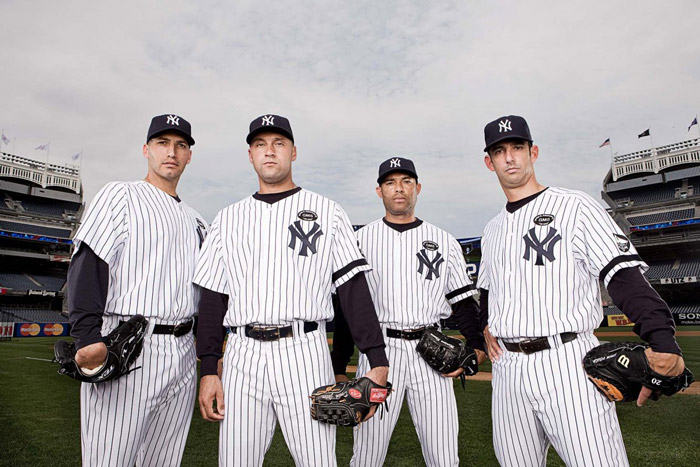Six years ago, I made a pilgrimage to the old home of the New York Yankees, the so-called “House That Ruth Built.” It wasn’t a special game per say, just a late May tilt between the Yankees and the Seattle Mariners. To me though, this game meant something. I was witnessing history. After 85 years, the Yankees were moving across the street to a new and improved stadium. The old building’s concrete was covered with layers of grime and its blue seats were decrepit and old. But this stadium had a mystique about it, something that couldn’t be found anywhere else.
After a Johnny Damon groundout, the late Bob Sheppard’s voice rang out: “Now batting for the Yankees, the shortstop, number two, Derek Jeter, number two.”
For 56 years, Bob Sheppard was the voice of Yankees baseball. He saw 13 World Series Champions and narrated the careers of 16 Yankee Hall-of-Famers. He called Mickey Mantle’s Triple Crown season and he was there for Reggie Jackson’s three home run game.
I don’t want you to think I’m some sort of deranged Blue Jays fan, I absolutely loathe the Yankees. I hate their arrogant New York attitude, their seemingly endless payroll, and the fact that they just never seem to lose. Yet in the end, I begrudgingly respect them. The Yankees just seem to have a special way of doing things.
I never got to see Mr. October or the Great Bambino, but one day when my children ask me if I ever got to see Mr. November step into the box, I’ll tell them about that night. In an era where fans are hesitant to form attachments to players, guarding their hearts against the frantic pace of free agency, Jeter has been a constant. He was the Yankees’ shortstop the first time I saw them play, and he’s been the only shortstop I’ve ever known to don the pinstripes. If his 14 All-Star appearances, five golden gloves, and .309 career batting average don’t impress you enough, maybe his flair for the dramatics will. He helped seal the 2001 American League Division Series for the Yankees when he scooped up an errant throw from outfielder Shane Spencer and, with his momentum carrying him off the field, flipped the ball home to throw out a sprinting Jeremy Giambi.
His 3,000th career hit was crushed over the left-field fence in Yankee Stadium for a home run. Last Thursday night, Jeter hit a walk off single in his final at-bat at home in front of the 48,000 crazed New Yorkers. The hit, a slapped grounder to right field, was vintage Jeter. On Sunday at Fenway Park, he earned a hit in the final at-bat of his long career, beating out a high chopper to the Boston third baseman. His legend is one of storybook proportions.
In 1995, catcher Jorge Posada, starting pitcher Andy Pettitte, closer Mariano Rivera, and Jeter put on the pinstripes for the first time, forming what would come to be known as the “Core Four.” After five championships and a combined 5,996 games, baseball fans everywhere waved goodbye on Sunday not just to Derek Jeter, but also to the end of a special era. With Major League Baseball becoming more and more commercial, it may be a while before we see another player transcend his stats and transform into an icon.









